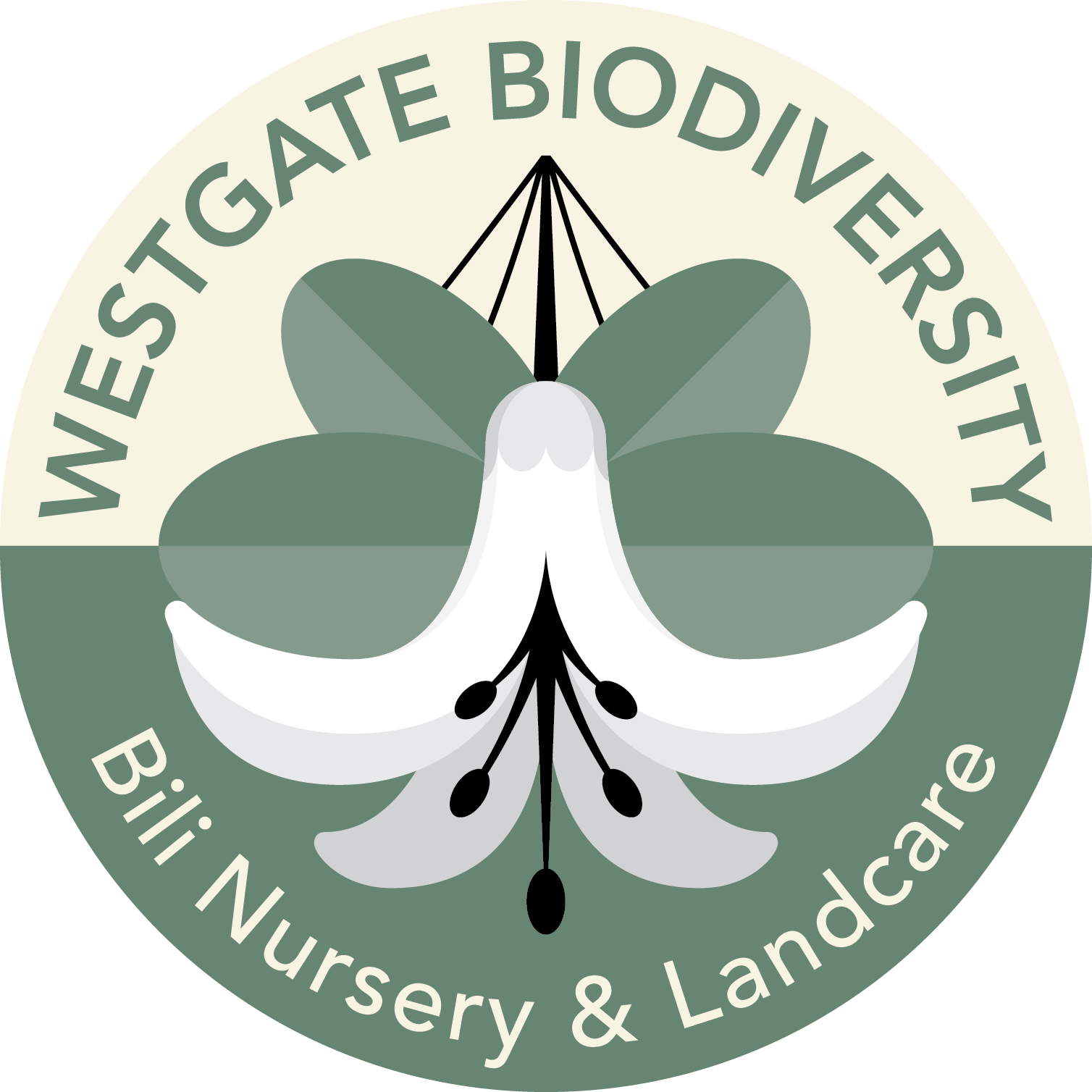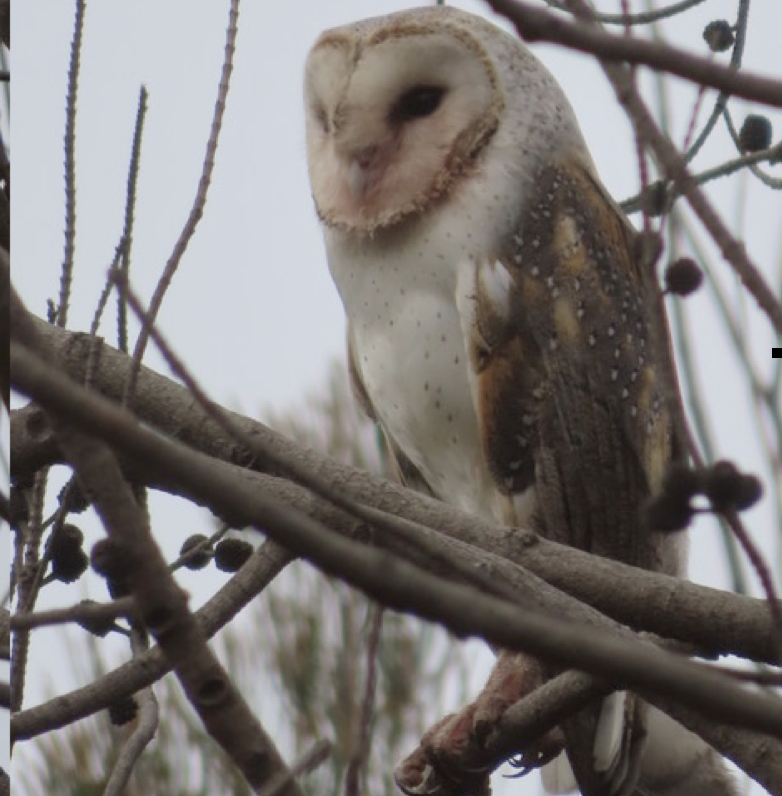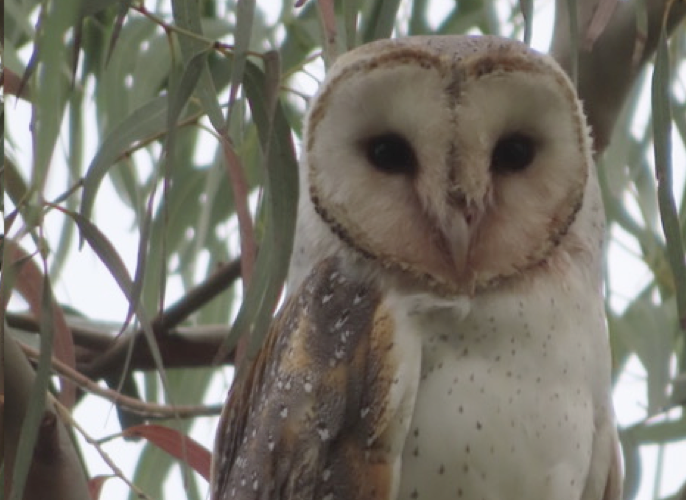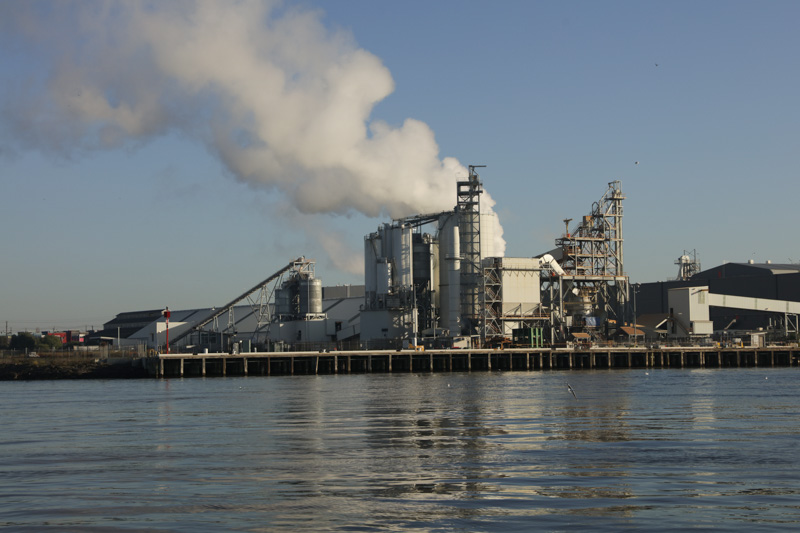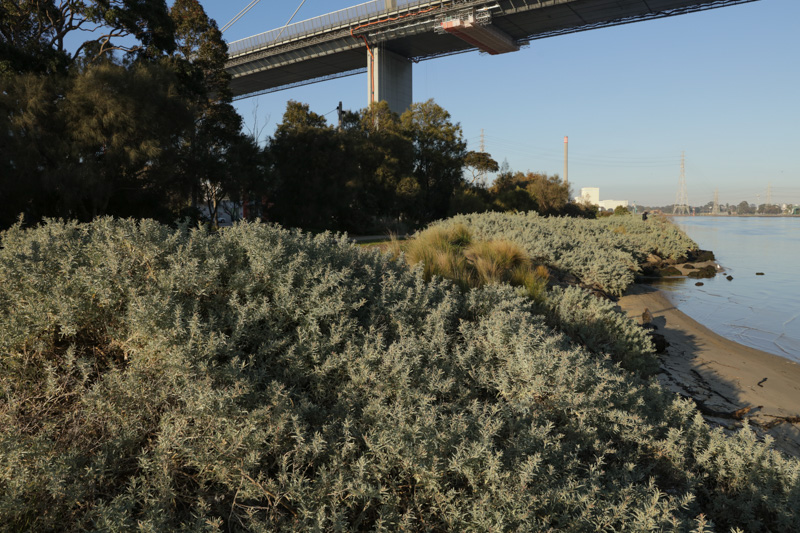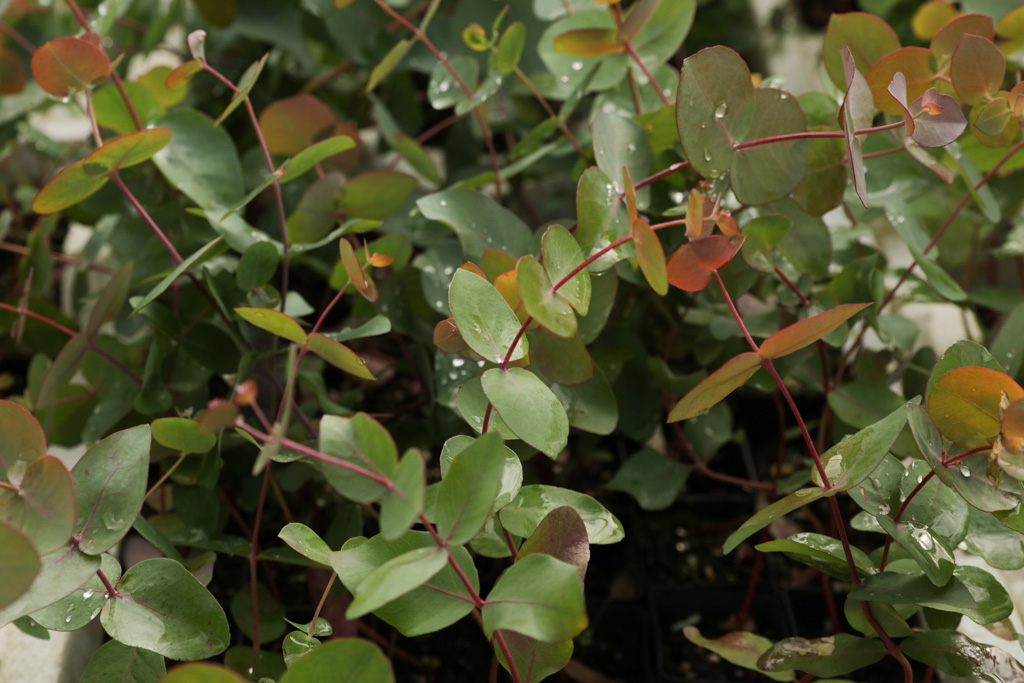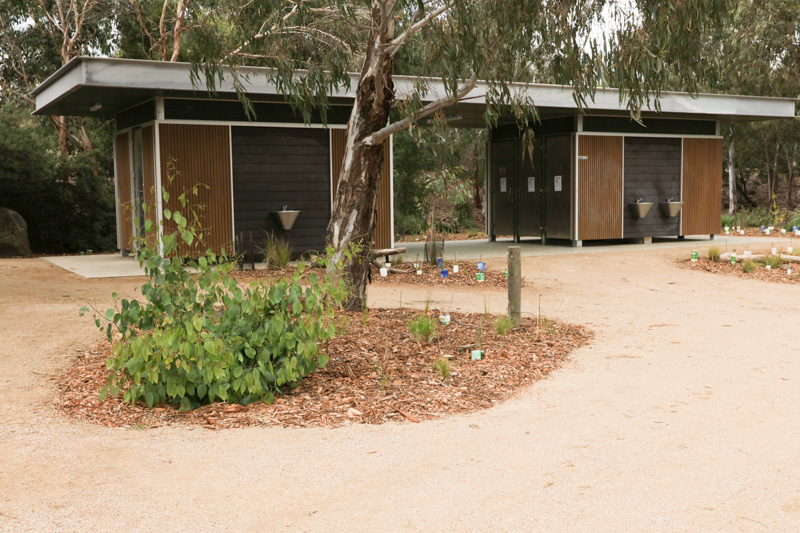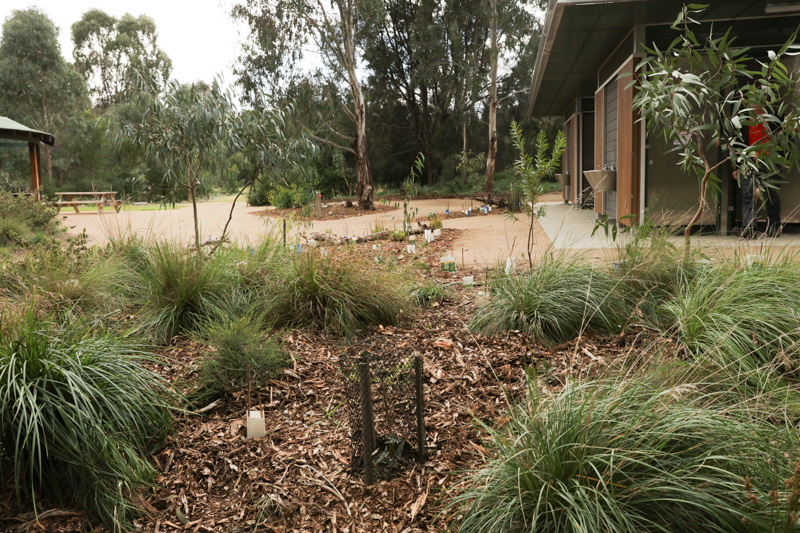AGM proxy
AGM Proxy form
What Stage 4 lockdown means for us
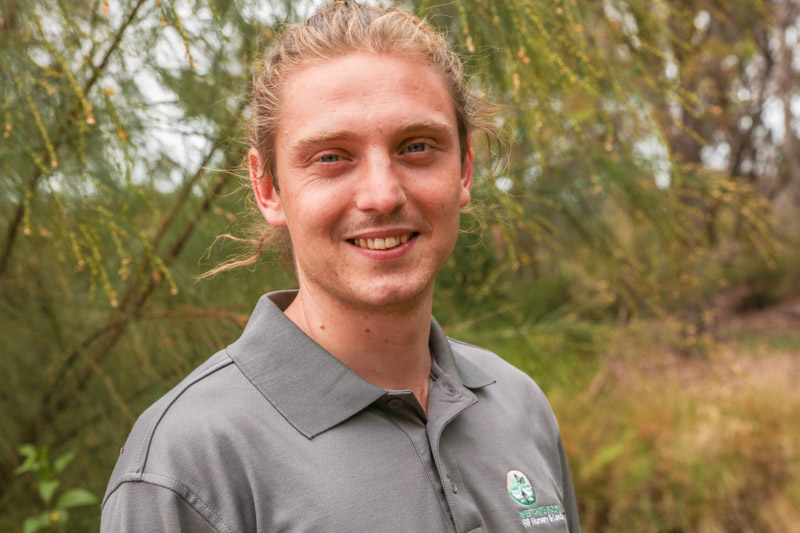
Bili Nursery has been able to continue operation because we are a ‘wholesaler to the garden industry’ and this means we can fill existing and new plant orders with local government – our main customers – for which we are very grateful.
There will however be no retail trade and we will not open on Saturdays. Volunteering at Bili Nursery is now very limited and volunteering in Westgate Park has stopped altogether until restrictions are lifted.
We are taking great care to ensure everyone at the nursery is working safely and to maintain a safe environment.
If you have been volunteering with us we will let you know when this is possible again. Call us if you need to on our new number 0492 972 652.
Take good care…
Nic Brinkley, Manager Westgate Biodiversity
Bird survey 6 July
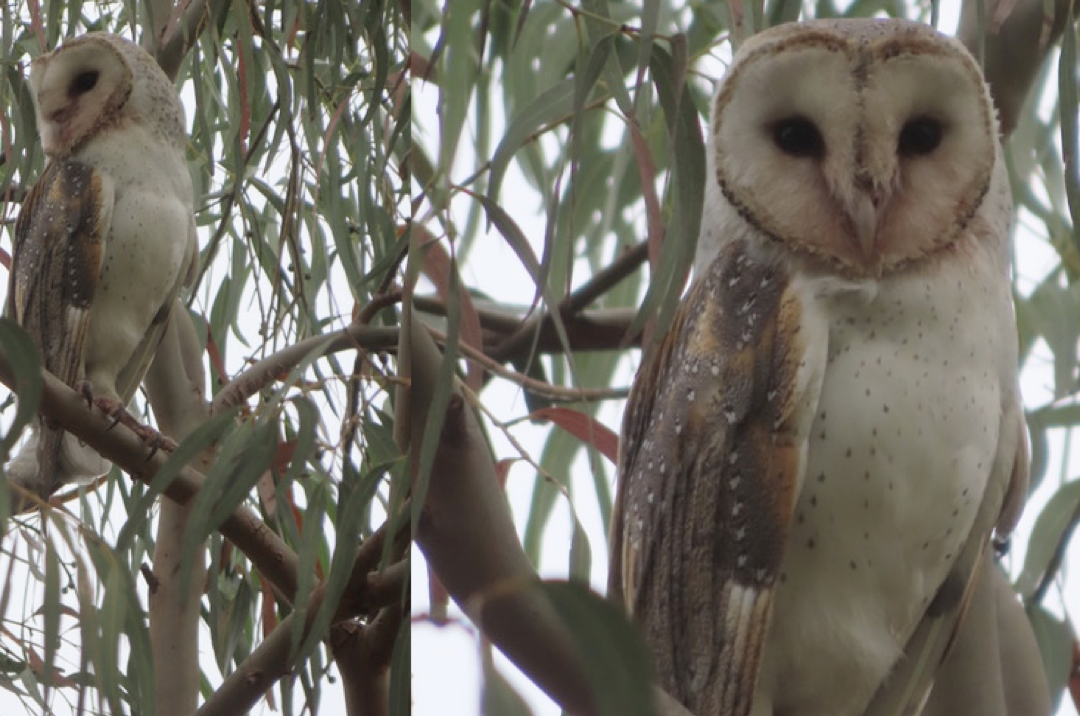
Thanks to continuing rains, water levels and quality in the fresh water lake are very high with consequent reduced numbers of several species of water birds. The salt lake level now reads .83 m – up .03m from last survey.
Vegetation throughout the park continues to respond well, including weeds, a challenge for our volunteers, and supports good numbers of land-based birds. Many wattles are about to flower.
Interesting/notable sightings:
– One Barn Owl near the windmill – Red Wattlebirds and Little Ravens were quick to circle and harass this fine specimen of a fascinating species.
– A young Black-shouldered Kite on a port light-pole; the recent developments ensure that this once frequent species is now an unusual sighting.
And see here for more about Barn Owls.
photos Gregor Howie
A walk in the park
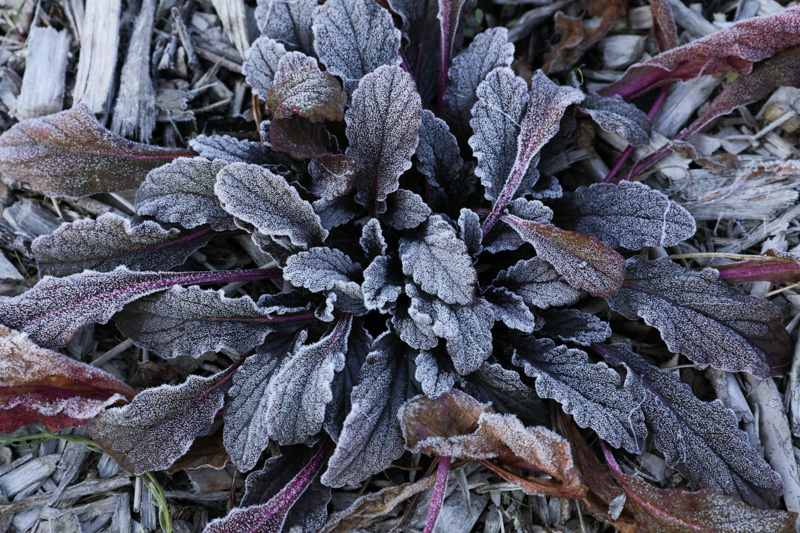
It’s 9 am, 2 deg. and sunny. I start at Lorimer Street near the punt. People everywhere – jogging, dog-walking, fishing, a walking race, cycling. The river is glistening and calm, other than the occasional boat wash.
Across the way, industrial neighbours and Atriplex cinerea softening the rock wall.
Revegetated only 2 years ago, the river section to the south is looking lush. Good rain has brought lots of weeds but carpets of Disphyma are holding their own and young Banksia integrifolia are at last growing strongly.
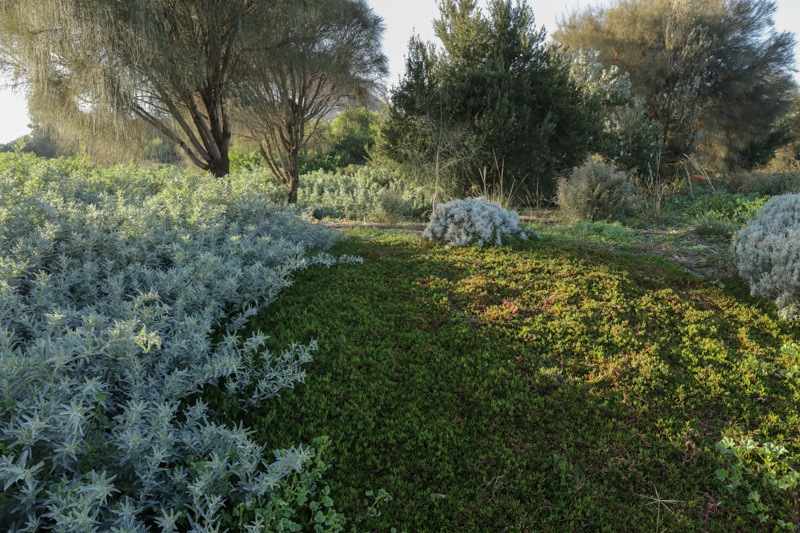
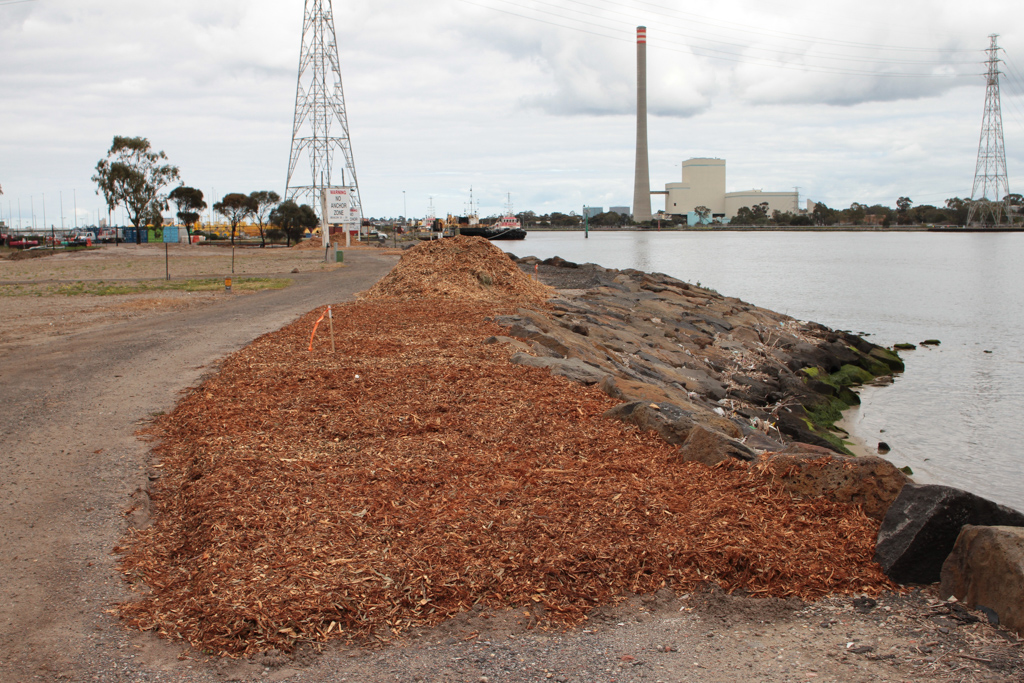
2018 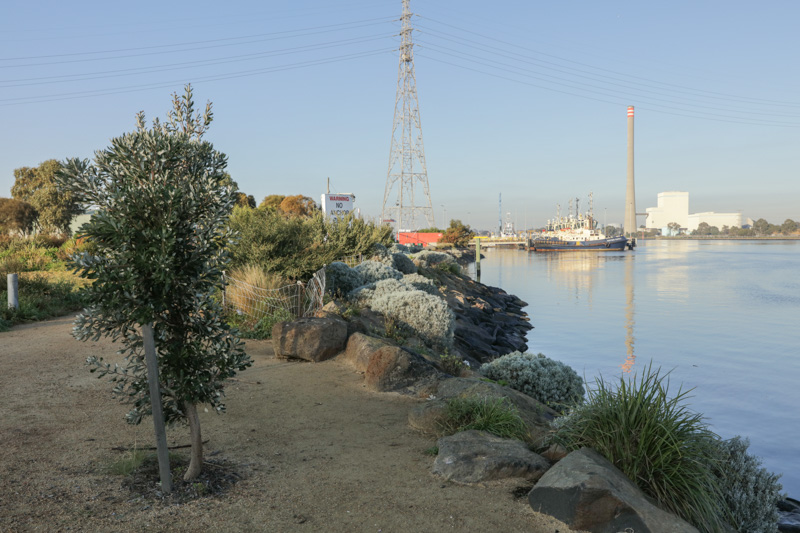
2020
Frost and beads of dew hang like jewels on anything still in the shade along Southern Wetlands west.
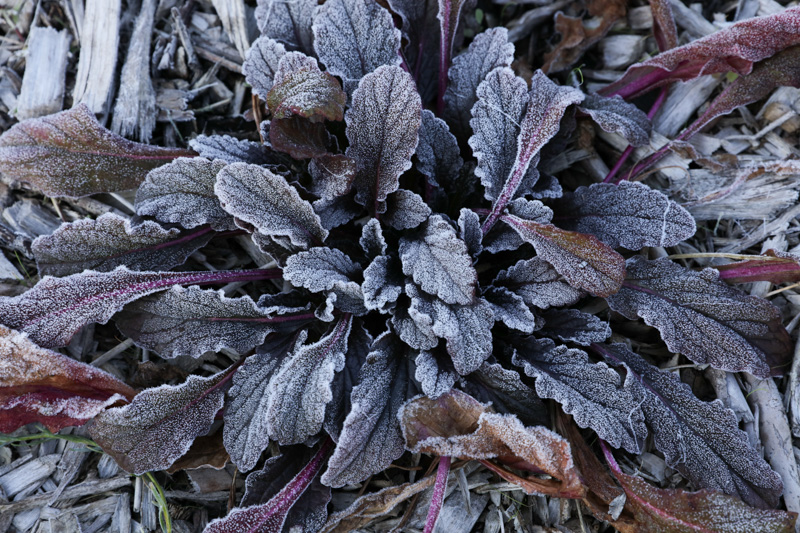
Ajuga australis 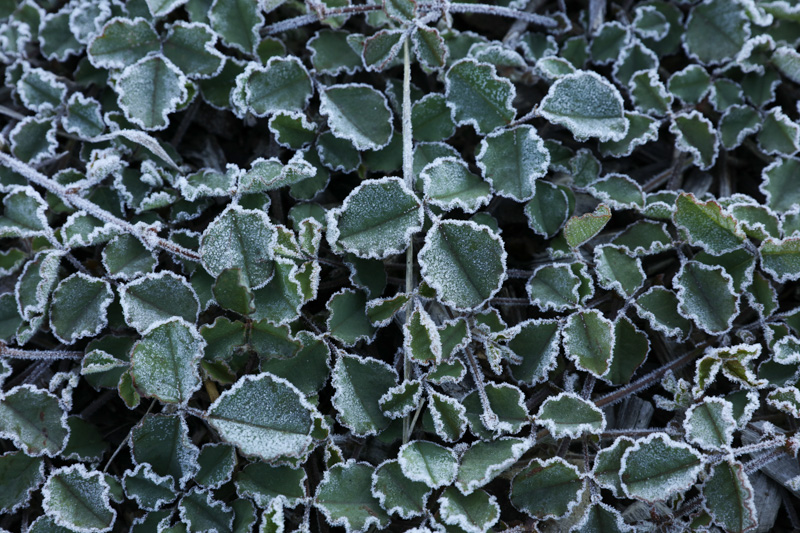
Kennedia prostrata 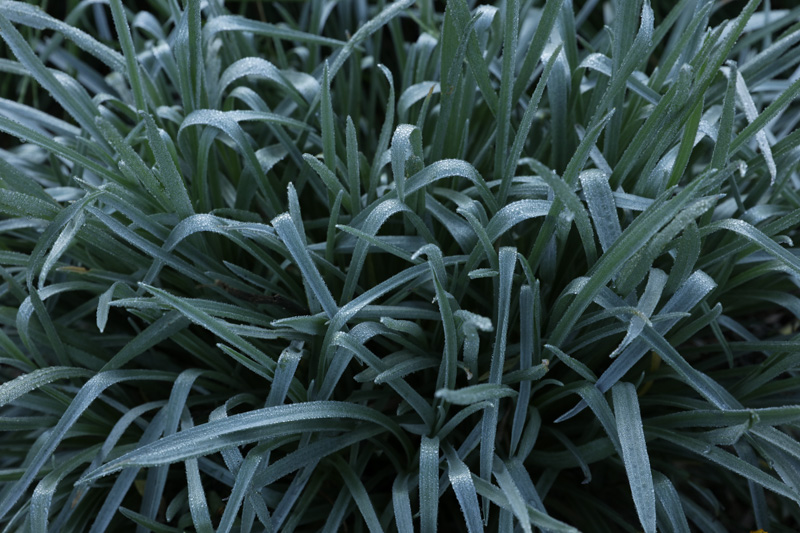
Pycnosorus globosus 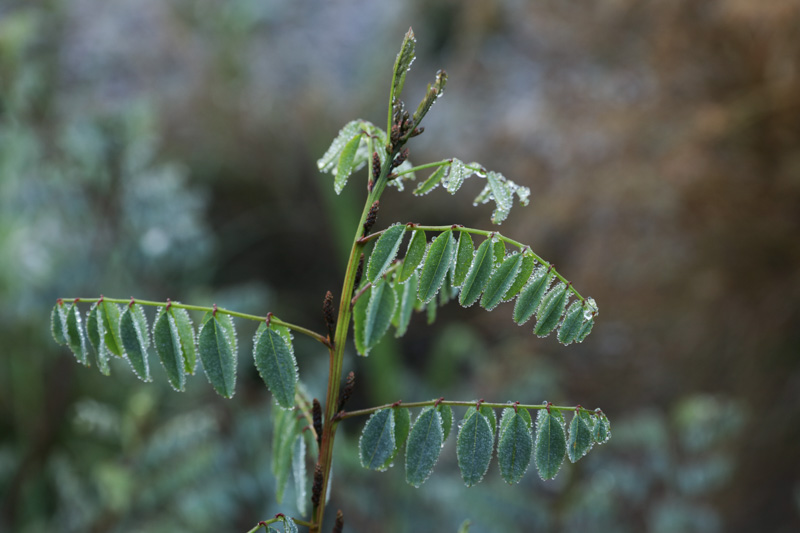
Indigofera australis 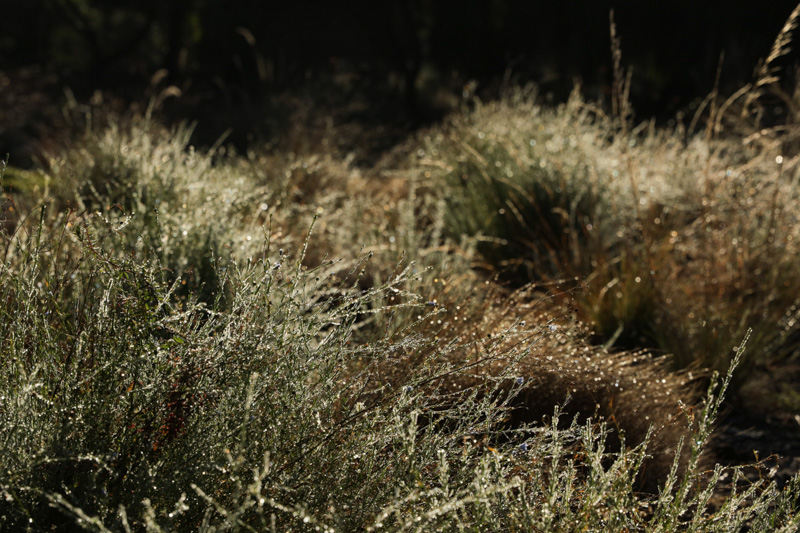
And plants are vivid in the early morning sun.
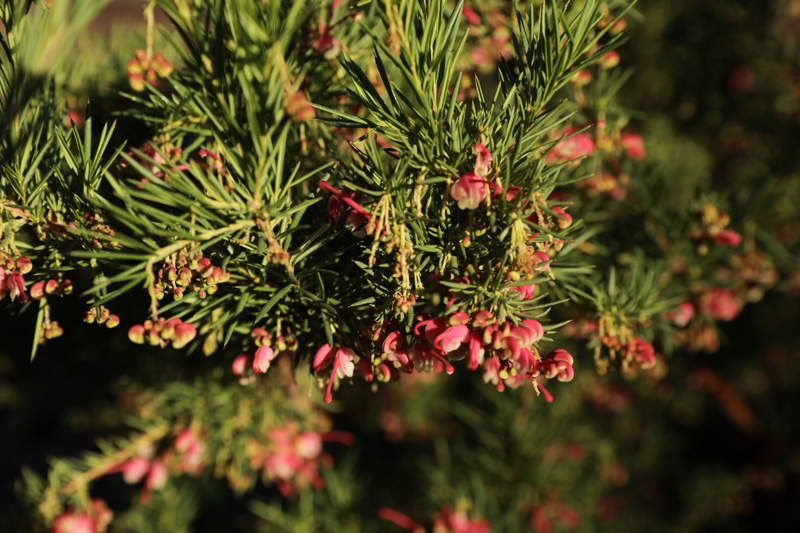
Grevillea rosemarinifolia
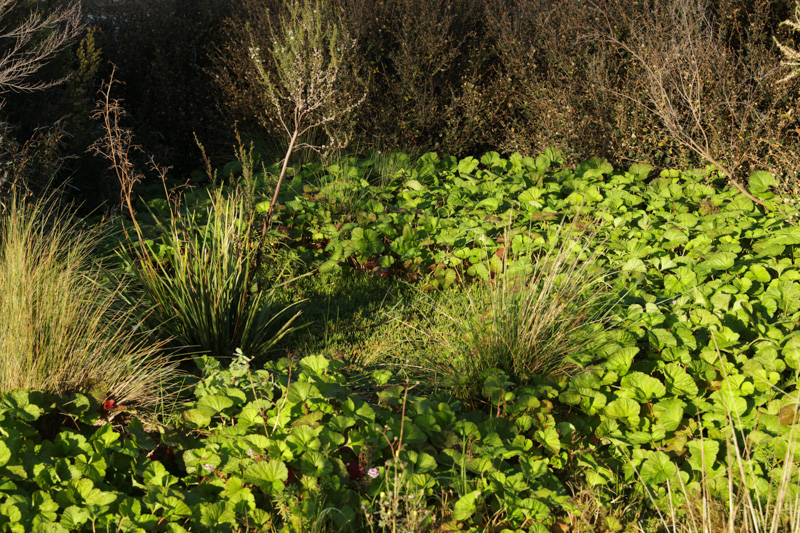
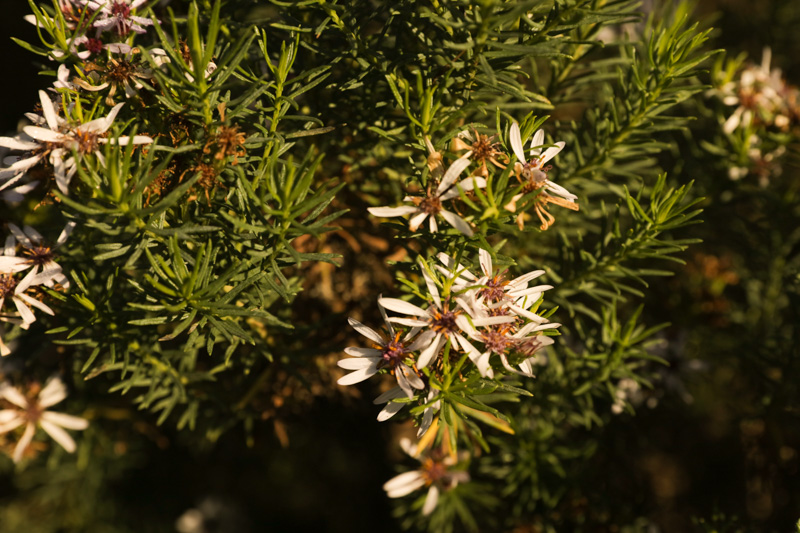
Olearia glutinosa 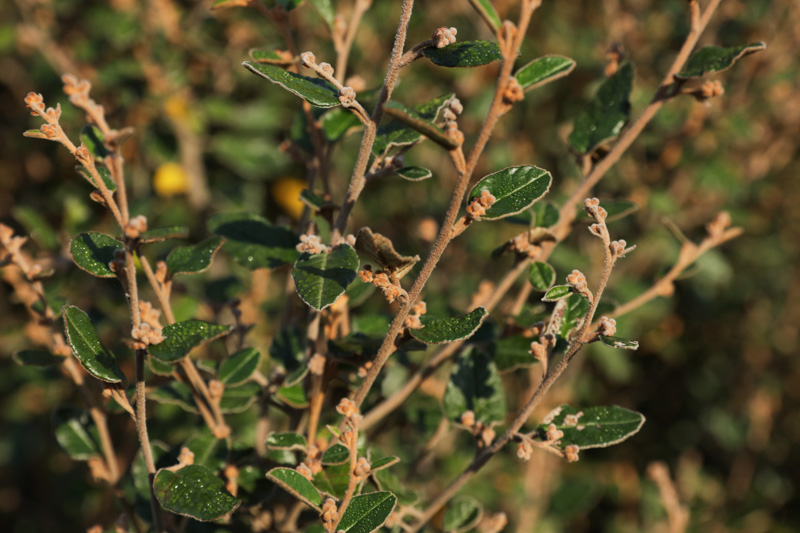
Pomaderris paniculosa 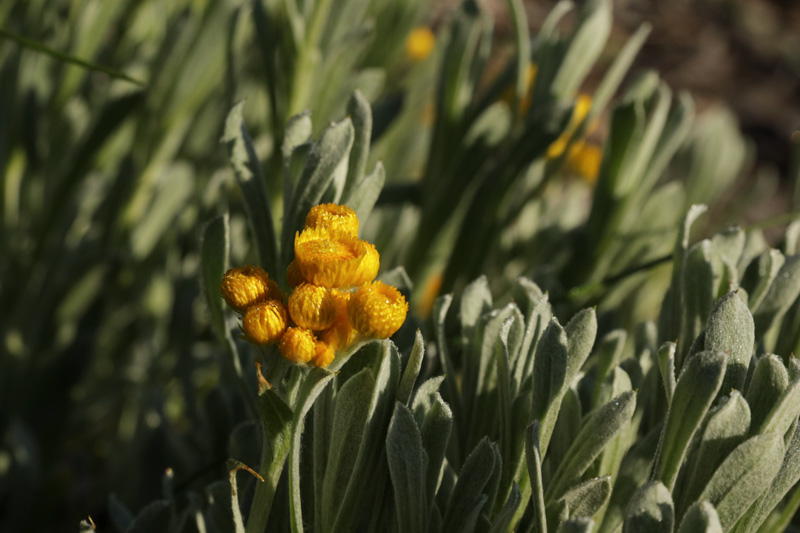
Chrysocephallum apiculatum
The remnant saltmarsh vegetation in Redgum Lagoon and around the saltwater lakes is thriving.
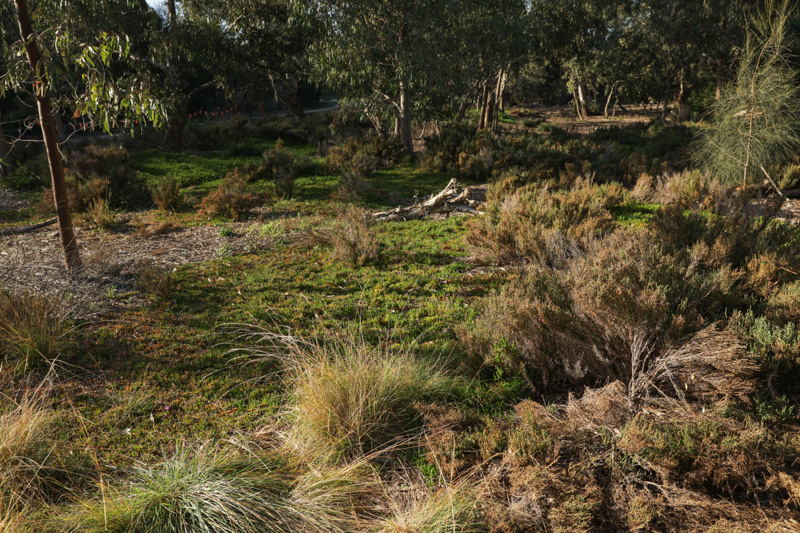
Redgum Soak 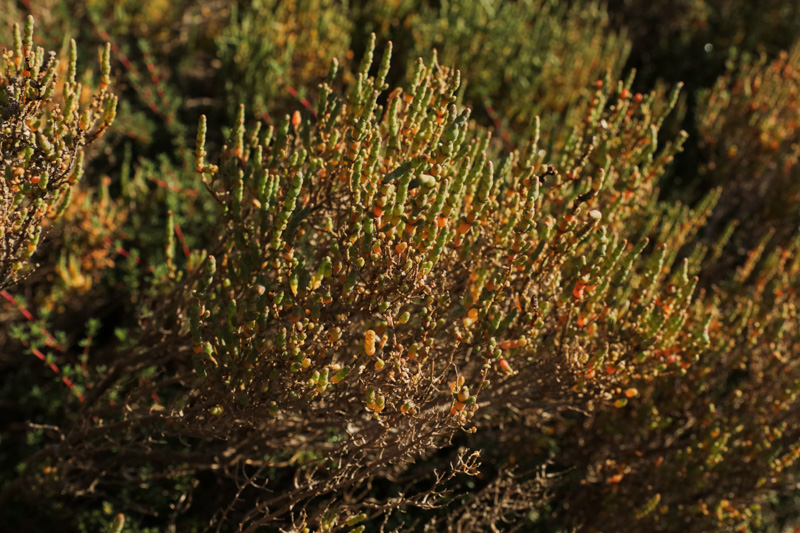
Tecticornia arbuscula 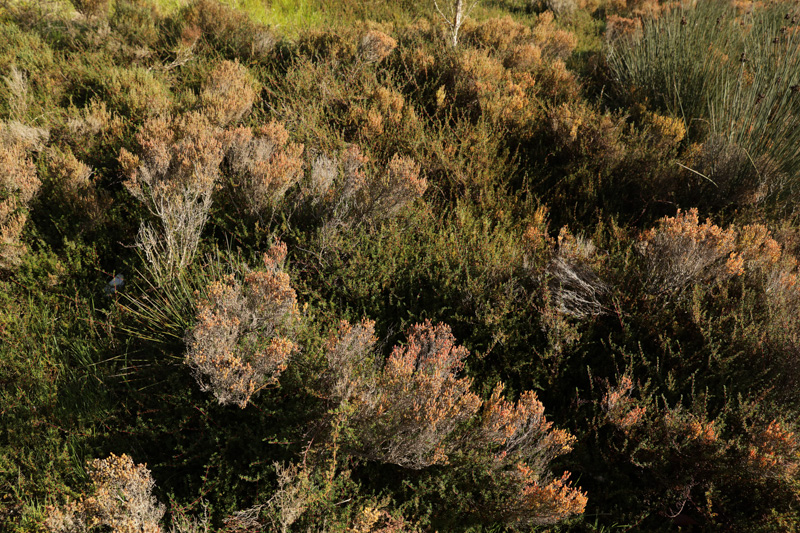
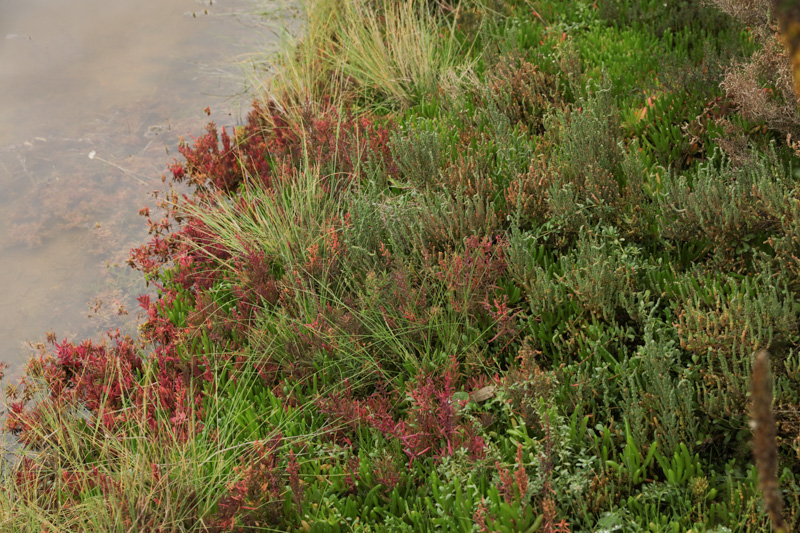
I head to the dam and the Freshwater Lake where water levels are high. It’s likely that the Purple Swamphen has been uprooting the Triglochin procera for its tubers, judging by the ribbon leaves floating on the dam.
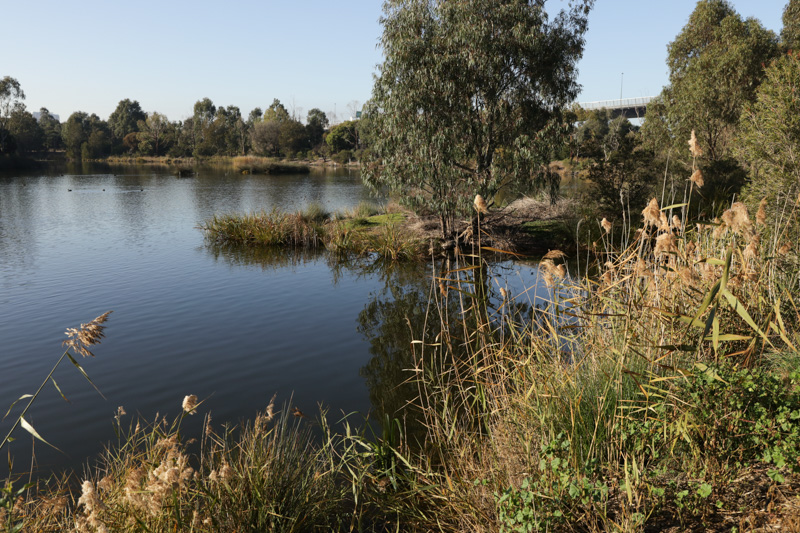
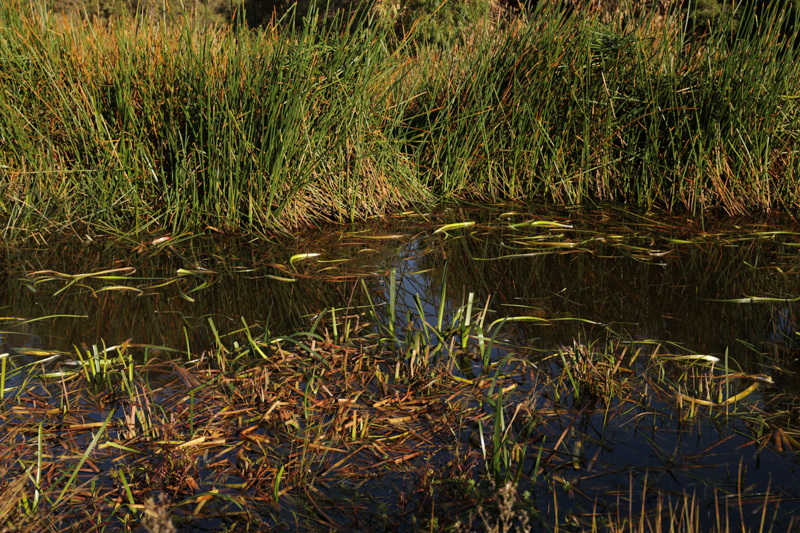
Dam
On my way back I notice red flowers on what looks like Eucalyptus leucoxylon which doesn’t seem right – must ask George! Banksia flowers are plentiful which is good for nectar-eating birds.
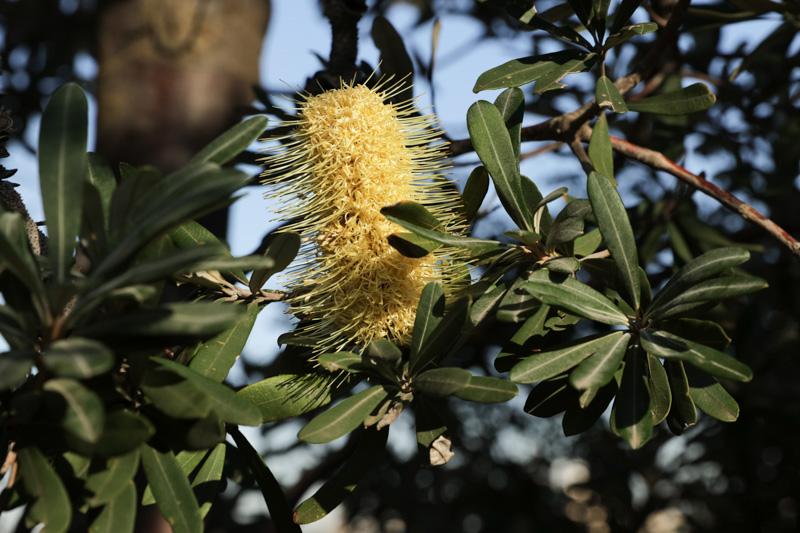
Banksia integrifolia 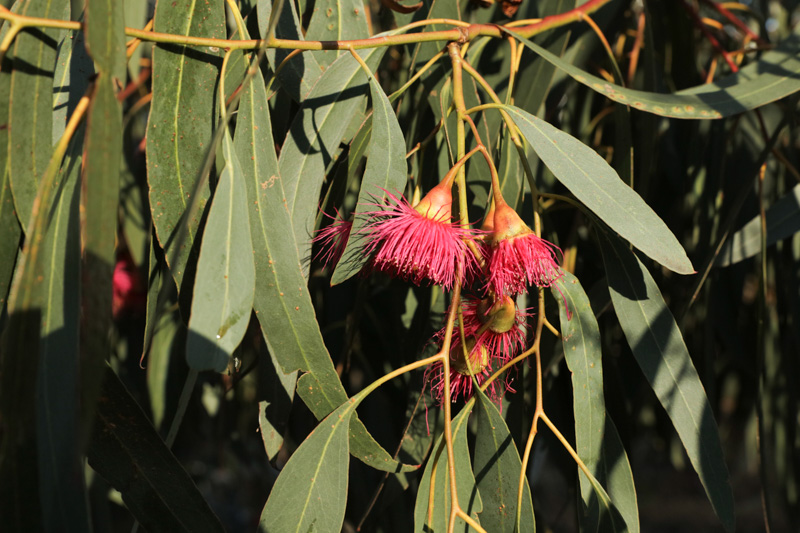
Eucalyptus, possibly leucoxylon
Favourites of mine along the river bank are Alyxia buxifolia – Sea Box with its small white windmill-shaped flowers with orange stems and Zygophyllum billardierei – Coast Twinleaf which is a ‘scrambler’ with succulent Y-shaped leaves and masses of bright yellow flowers. It’s listed as Rare in Victoria but we have several large and healthy patches.
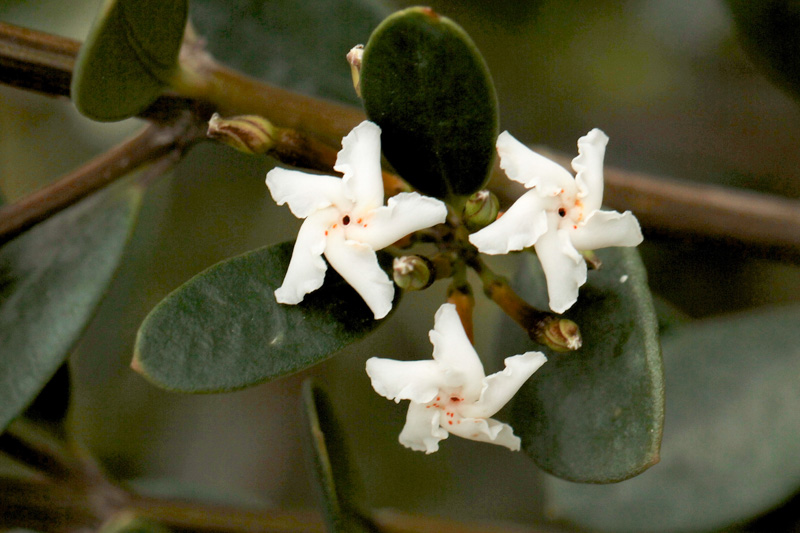
Alyxia buxifolia
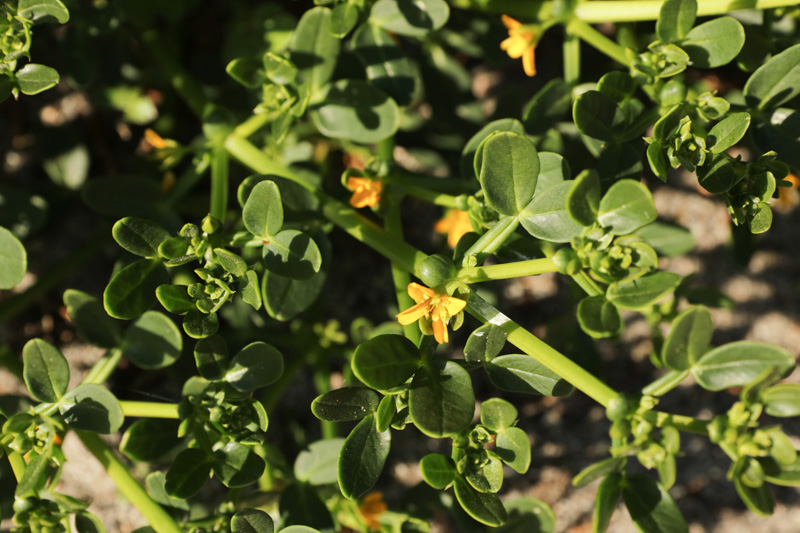
Zygophyllum billardierei 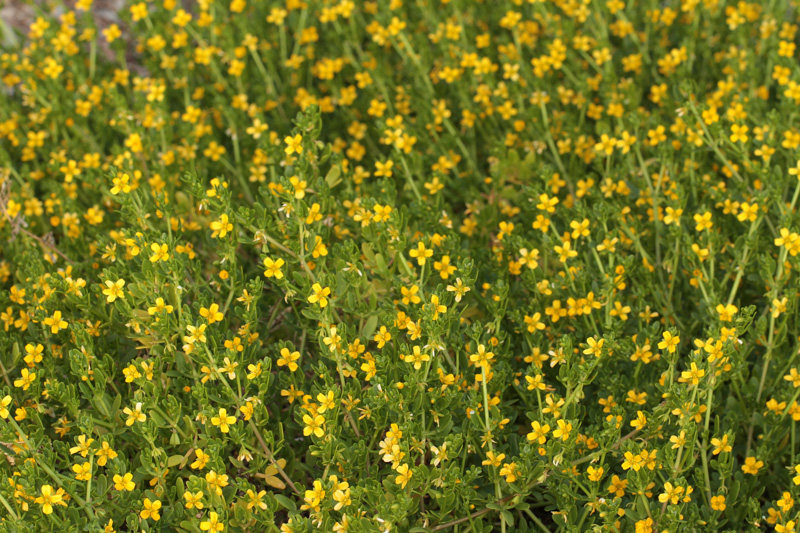
Zygophyllum billardierei
Doing it for Koalas
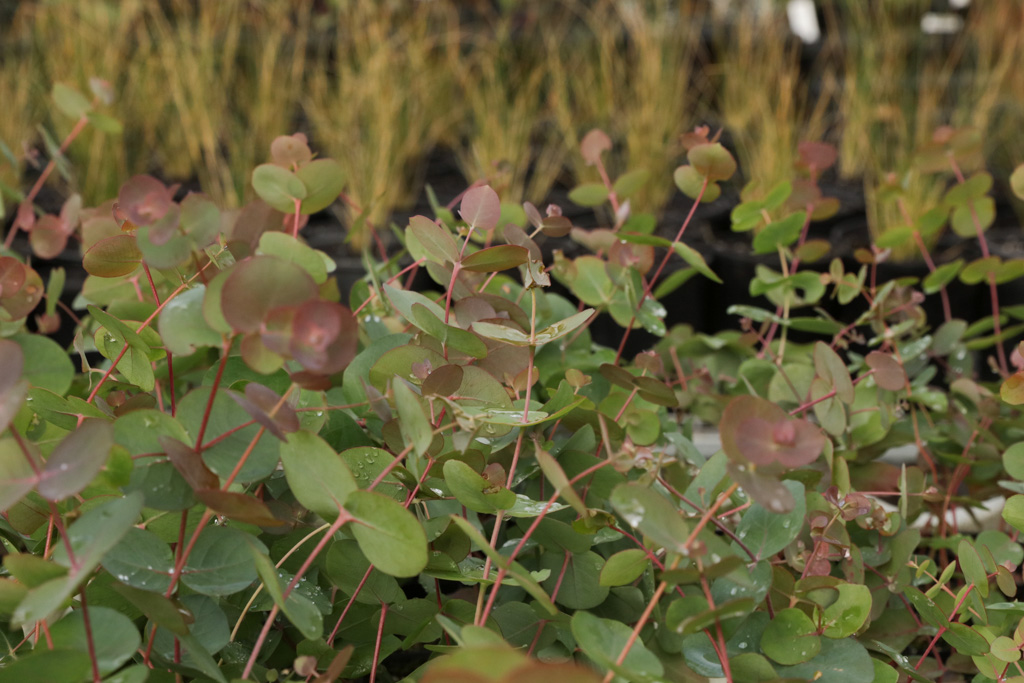
Bili Nursery received a very special order from the Clancy Koala Foundation for 3,500 Eucalyptus goniocalyx – Long-leafed Box or Bundy.
These trees will be used by the Foundation for planting days on private land in the You Yangs, west of Melbourne, to rebuild habitat for Koalas. Drought over the last few years has led to a decline of around 50% in numbers of Koalas in this area in the last decade.
Eucalyptus goniocalyx is a fast-growing tree that can reach 15 meters in height and is tolerant of dry and poor soils. The pink-tinged juvenile leaves are looking just lovely, as you can see.
Our latest project
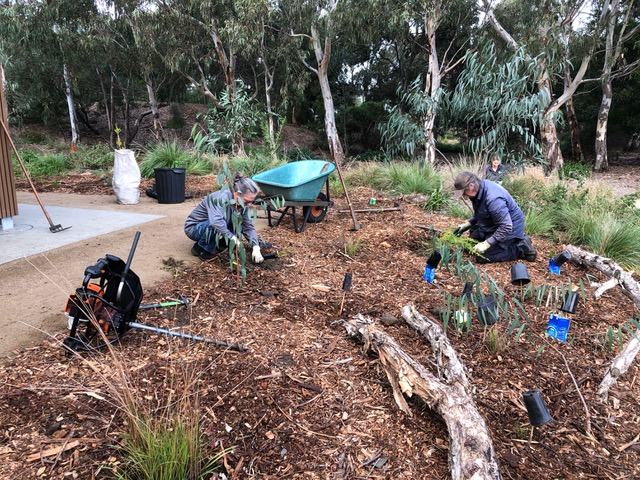
The new toilet block was very welcome and we are pleased with how it turned out.
It’s now been landscaped and this week we mulched and planted the garden beds.
Many thanks to the volunteers who did the work – it’s looking splendid!
Fungi Foray at Westgate Park 24 May – registration
Call 0407 691 512 for more information.
Fungi on show
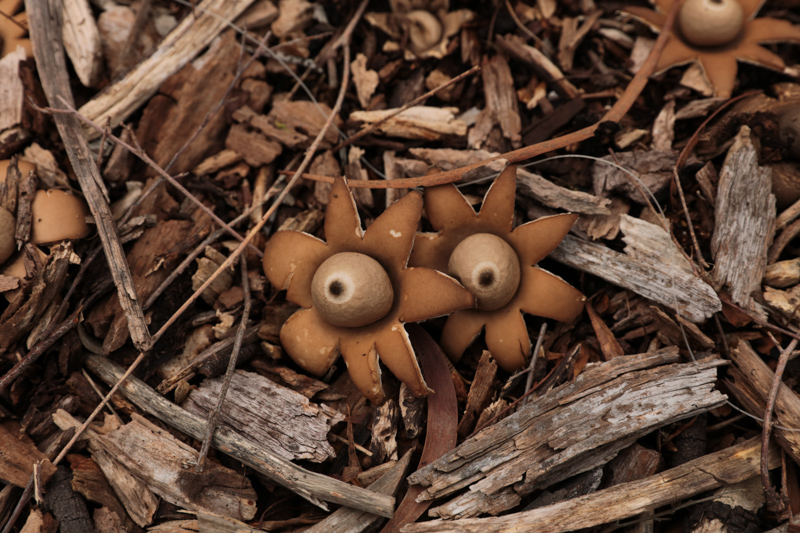
After good rain and cool weather, the fungal sporing bodies – the ‘mushrooms’ – are popping up throughout Westgate Park. As we can’t run fungi forays right now, we will bring you regular updates on what’s appearing in the Park.
Starting with the gilled species, Agrocybe praecox occurs worldwide and is right now the most prevalent in the Park. You can see it in groups right near the main carpark growing on woody mulch. It’s yellow cap generally splits soon after it emerges.
Chlorophyllum brunneum is a handsome mushroom. We strongly discourage eating any fungi from the Park and this species can cause serious illness. It is doing a good job however in breaking down organic material into useful nutrients.
We have been able to identify about 70 species of fungi in the Park but there are some that we can’t be sure of without examination under a microscope.
Others are easily distinguished like Bolbitius titubans but this small mushroom, typically found on grass, changes dramatically from a rounded, bright yellow, sticky cap to a silvery flat one and disappears within days. Unlike most inkcaps that liquify into black fluid, Parasola plicatilis spreads its spores and disappears within 24 hours.
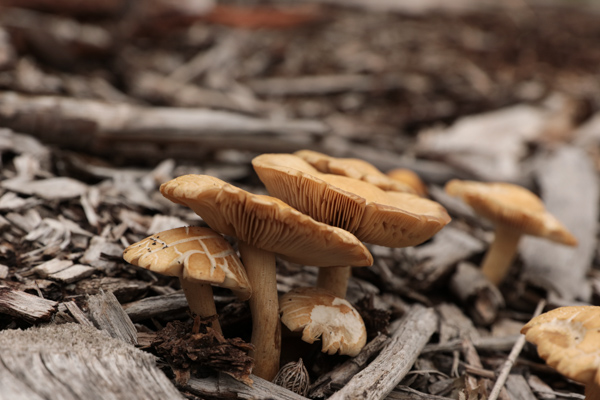
Agrocybe praecox – Spring Agrocybe 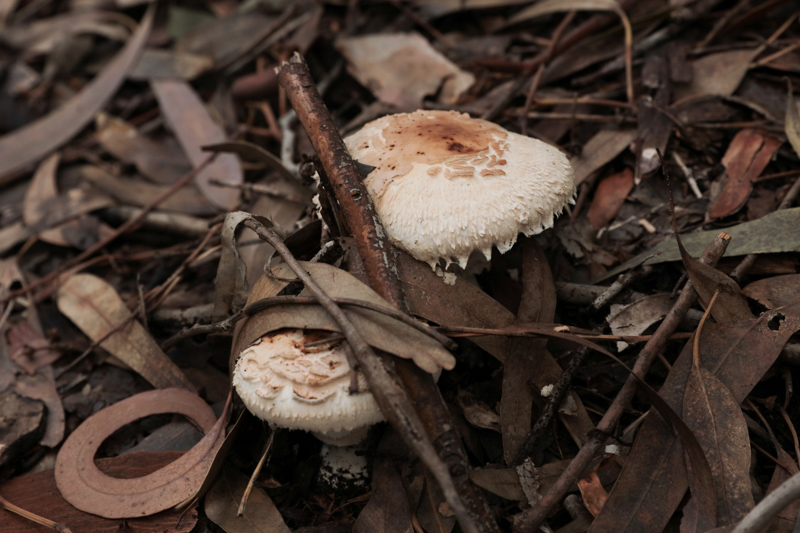
Chlorophyllum brunneum – Shaggy Parasol 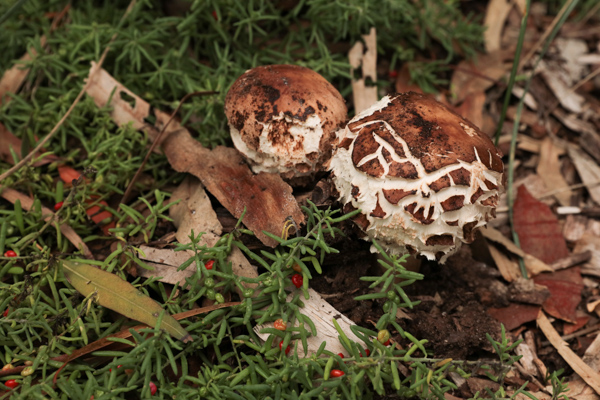
Chlorophyllum brunneum – Shaggy Parasol 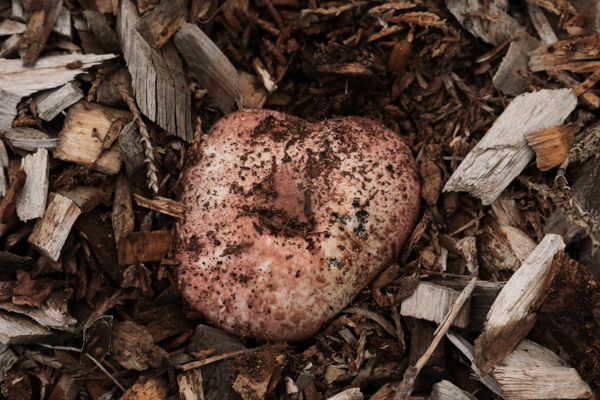
Agaricus sp. 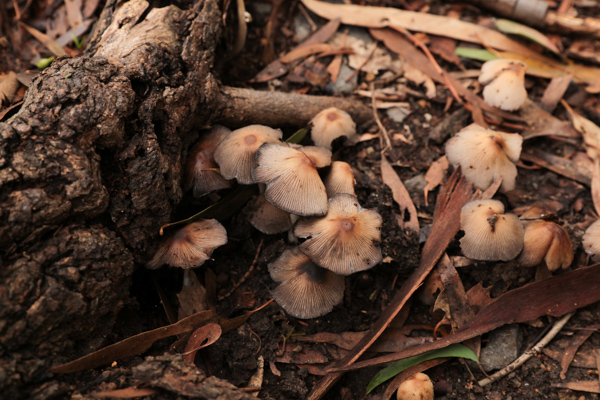
Coprinellus sp. 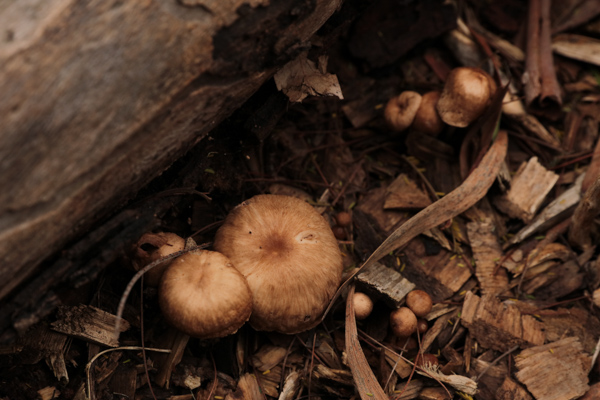
Gymnopus sp. 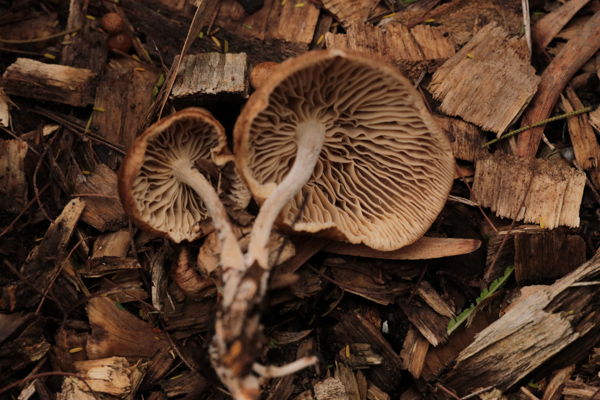
Gymnopus sp. 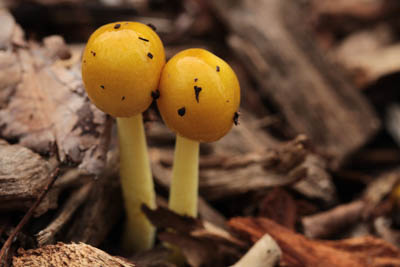
Bolbitius titubans – Egg-yolk fieldcap 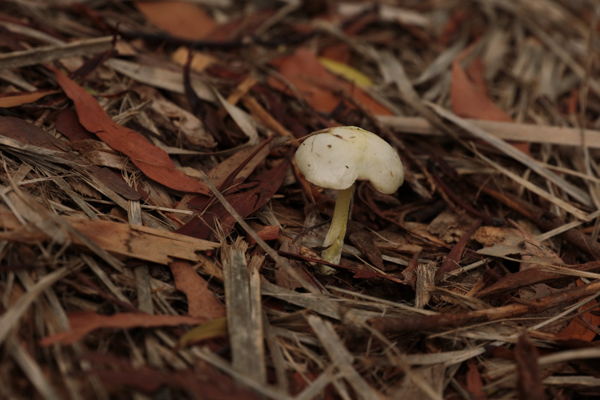
Bolbitius titubans – Egg-yolk Fieldcap 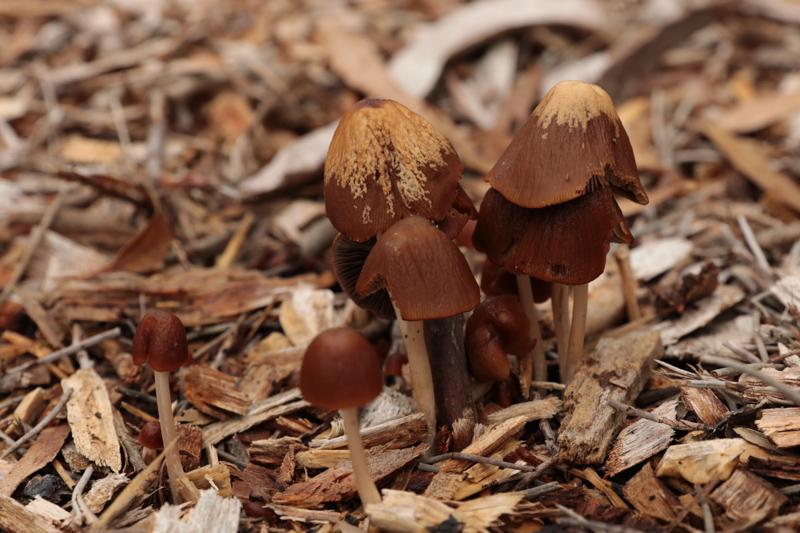
Parasola conopilus 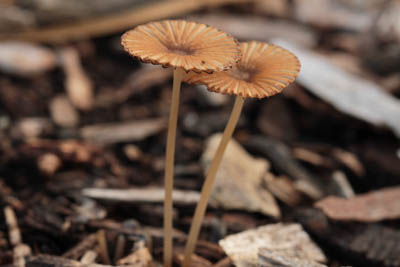
Paarasola plicatilis – Pleated Inkcap
Fungi have evolved with varied means of spreading their spores. Gilled fungi largely rely on wind which is why their caps and gills are lifted up on stems. Aseroe rubra is particularly bizarre. It emerges in an egg-like sac and has up to 8 ‘arms’ and is covered by a sticky, smelly, brown, spore-bearing mass that is walked off or passed through insects that are greatly attracted to it!
Geastrum triplex is as inventive. It is a tiny, double-layered sphere and the outer layer splits to stabilise and expose the papery puffball inside. The small hole at the top allows puffs of spores to shoot out as rain drops on the surface of the ball.
Mycenastrum corium is much larger – ~200mm across – and has a tough outer layer that splits on maturity and the spores are spread by wind and rain. Pycnoporus coccineus is a tough, bright red bracket fungus appearing on dead logs fir much of the year. It has fine, bright red pores on the underside, from which white spores are dispersed.
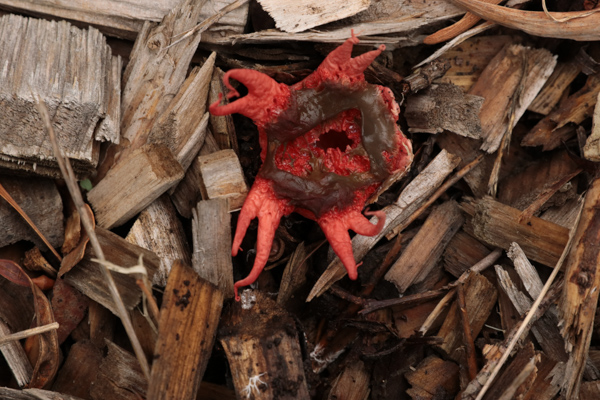
Aseroe rubra – Starfish or Anenome Stinkhorn 
Geastrum triplex – Earth Star 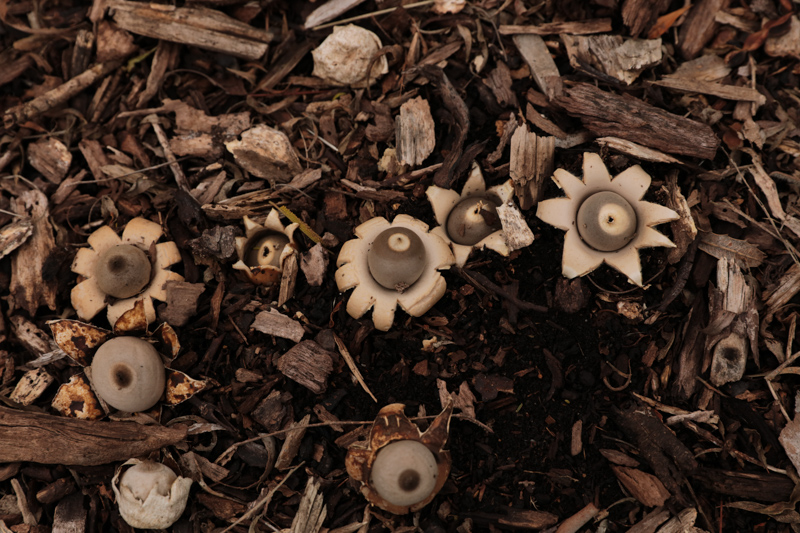
Geastrum triplex – Earth Star 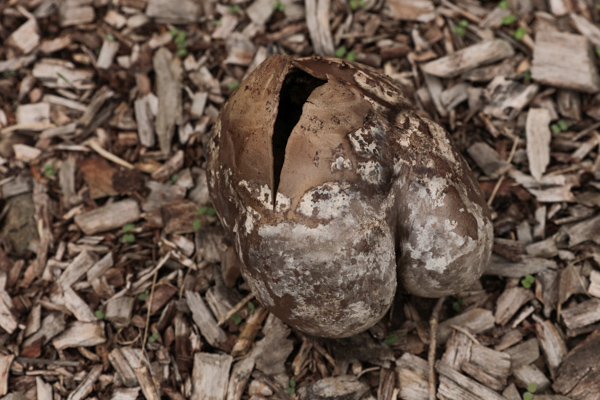
Mycenastrum corium – hard-skinned puffball 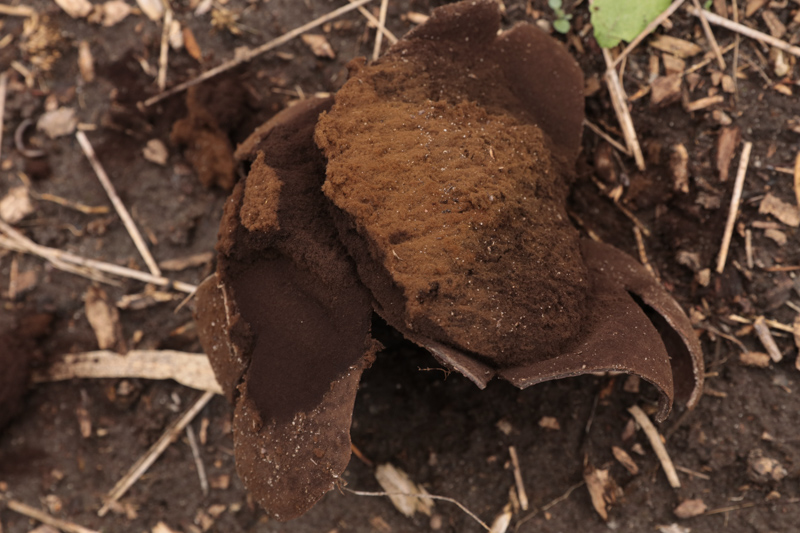
Mycenastrum corium – hard-skinned puffball 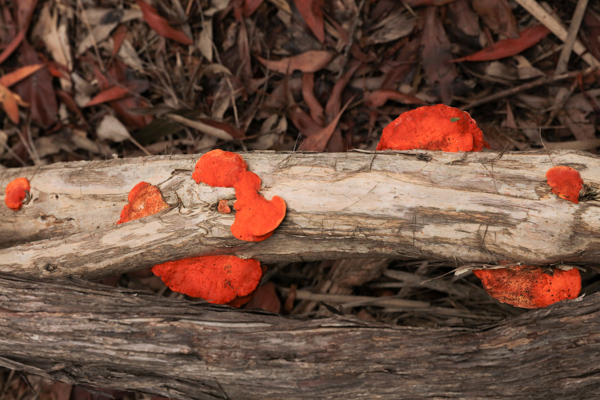
Pycnoporus coccineus – Red Bracket
Covid-19 policy
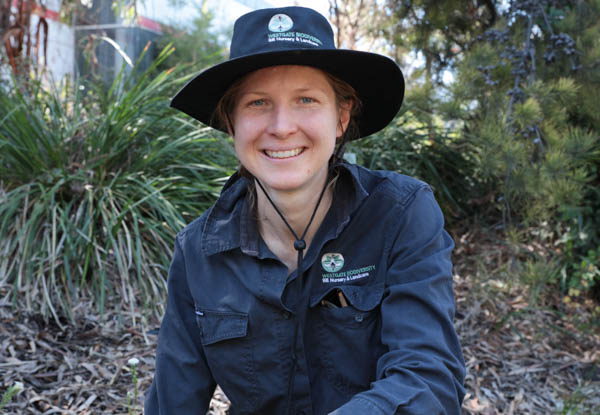
We have implemented a policy of containment for the virus to keep our staff and volunteers safe.
If you intend to come to Bili Nursery or Westgate Park for volunteering, please ring Nic beforehand on 0401 790 423 and be sure to read our policy carefully.
Thank you!
